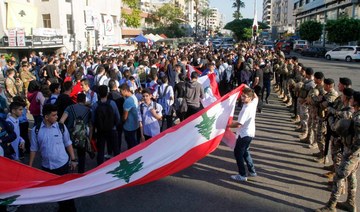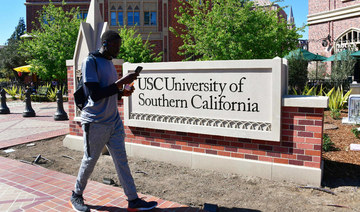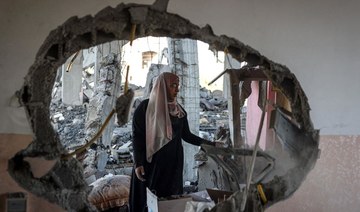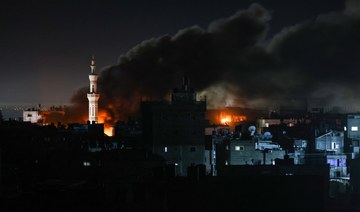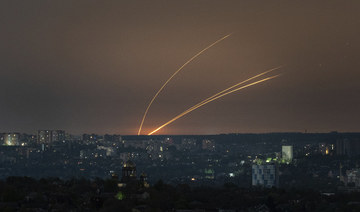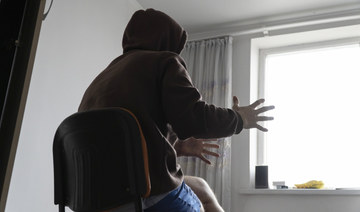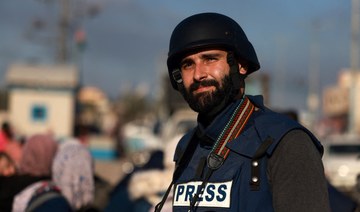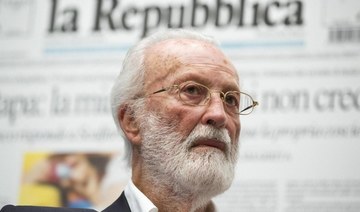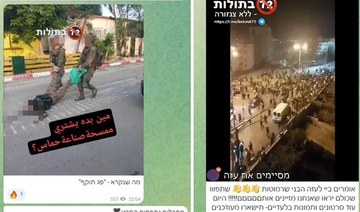BEIRUT: Lebanese journalists are facing threats and wide-ranging harassment in their work — including verbal insults and physical attacks, even death threats — while reporting on nearly 50 days of anti-government protests, despite Lebanon’s reputation as a haven for free speech in a troubled region.
Nationwide demonstrations erupted on Oct. 17 over a plunging economy. They quickly grew into calls for sweeping aside Lebanon’s entire ruling elite. Local media outlets — some of which represent the sectarian interests protesters are looking to overthrow — are now largely seen as pro- or anti-protests, with some journalists feeling pressured to leave their workplaces over disagreements about media coverage.
The deteriorating situation for journalists in Lebanon comes despite its decades-old reputation for being an island of free press in the Arab world. Amid Lebanon’s divided politics, media staff have usually had wide range to freely express their opinions, unlike in other countries in the region where the state stifles the media.
The acts of harassment began early in the protests. MTV television reporter Nawal Berry was attacked in central Beirut in the first days of the demonstrations by supporters of the militant group Hezbollah and its allies. They smashed the camera, robbed the microphone she was holding, spat on her and kicked her in the leg.
“How is it possible that a journalist today goes to report and gets subjected to beating and humiliation? Where are we? Lebanon is the country of freedoms and democracy,” Berry said.
Outlets like MTV are widely seen as backing protesters’ demands that Lebanon’s sectarian political system be completely overturned to end decades of corruption and mismanagement.
Rival TV stations and newspapers portray the unrest — which led to the Cabinet’s resignation over a month ago — as playing into the hands of alleged plots to undermine Hezbollah and its allies. Many of those outlets are run by Hezbollah, President Michel Aoun’s Free Patriotic Movement and the Amal Movement of Parliament Speaker Nabih Berri. These media regularly blast protesters for closing roads and using other civil disobedience tactics, describing them as “bandits.”
For Berry, the media environment worsened as the unrest continued. On the night of Nov. 24, while she was covering clashes between protesters and Hezbollah and Amal supporters on a central road in Beirut, supporters of the Shiite groups chased her into a building. She hid there until police came and escorted her out.
“I was doing my job and will continue to do so. I have passed through worse periods and was able to overcome them,” said Berry, who added she is taking a short break from working because of what she passed through recently.
Hezbollah supporters also targeted Dima Sadek, who resigned last month as an anchorwoman at LBC TV. She blamed Hezbollah supporters for robbing her smartphone while she was filming protests, and said the harassment was followed by insulting and threatening phone calls to her mother, who suffered a stroke as a result of the stress.
“I have taken a decision (to be part of the protests) and I am following it. I have been waiting for this moment all my life and I have always been against the political, sectarian and corrupt system in Lebanon,” said Sadek, a harsh critic of Hezbollah, adding that she has been subjected to cyberbullying for the past four years.
“I know very well that this will have repercussions on my personal and professional life. I will go to the end no matter what the price is,” Sadek said shortly after taking part in a demonstration in central Beirut.
Protesters have also targeted journalists reporting with what are seen as pro-government outlets. OTV station workers briefly removed their logos from equipment while covering on the demonstrations to avoid verbal and physical abuse. The station is run by supporters of Aoun’s FPM.
“The protest movement has turned our lives upside down,” said OTV journalist Rima Hamdan, who during one of her reports slapped a man on his hand after he pointed his middle finger at her. She said the station’s logo “is our identity even though sometimes we had to remove it for our own safety.”
Television reporters with Hezbollah’s Al-Manar and Amal’s NBN channels were also attacked in a town near Beirut, when they were covering the closure of the highway linking the capital city with southern Lebanon by protesters. In a video, an NBN correspondent is seen being attacked, while troops and policemen stand nearby without intervening.
“This happens a lot in Lebanon because some media organizations are politicized. No one sees media organizations as they are but sees them as representing the political group that owns them,” said Ayman Mhanna, director of the Beirut-based media watchdog group SKeyes.
“The biggest problem regarding these violations is that there is no punishment,” Mhanna said. Authorities usually fail to act even when they identify those behind attacks on journalists, he added.
Coverage of the protests also led to several journalists resigning from one of Lebanon’s most prominent newspapers, Al-Akhbar, which is seen as close to Hezbollah, and the pan-Arab TV station Al-Mayadeen, which aligns closely with the policies of Iran, Syria and Venezuela.
Joy Slim, who quit as culture writer at Al-Akhbar after more than five years, said she did so after being “disappointed” with the daily’s coverage of the demonstrations. She released a video widely circulated on social media that ridiculed those who accuse the protesters of being American agents.
Sami Kleib, a prominent Lebanese journalist with a wide following around the Middle East, resigned from Al-Mayadeen last month. He said the reason behind his move was that he was “closer to the people than the authorities.”
“The Lebanese media is similar to politics in Lebanon where there is division between two axes: One that supports the idea of conspiracy theory, and another that fully backs the protest movement with its advantages and disadvantages,” Kleib said.
Lebanon’s journalists suffer abuse, threats covering unrest
Lebanon’s journalists suffer abuse, threats covering unrest
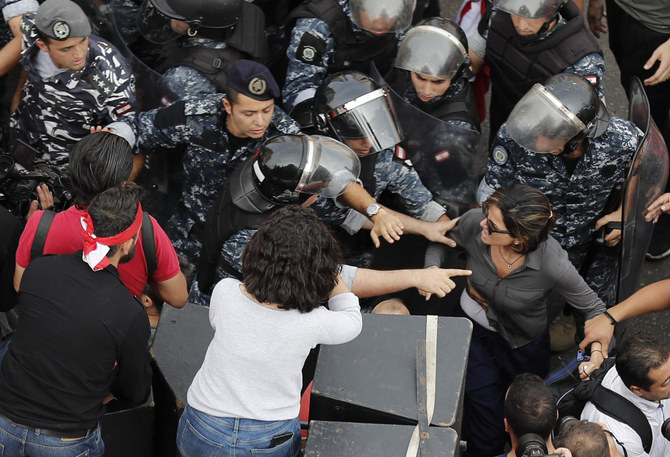
- The deteriorating situation for journalists in Lebanon comes despite its decades-old reputation for being an island of free press in the Arab world
US police arrest Jadaliyya co-editor Sinan Antoon during pro-Gaza demonstration at New York University

- Antoon was arrested along with other NYU faculty members while attempting to protect demonstrating students from the police
- NYU students were calling for a ceasefire in Palestine's Gaza Strip
LONDON: US police officers on Monday arrested Sinan Antoon, the co-editor of Jadaliyya magazine, during a pro-Gaza demonstration at New York University in Manhattan.
The Arab Studies Institute publication announced in a post on X that Antoon, an associate professor at NYU, was arrested with other faculty members while trying to protect protesting students, who were reportedly calling for a ceasefire in the Gaza Strip.
BREAKING: NYPD arrested Jadaliyya Co-Editor and NYU Associate Professor Sinan Antoon along with other faculty and students as he/they was/were trying to protect NYU students from the Police. We will not ever be silenced.
— Jadaliyya (@jadaliyya) April 23, 2024
Antoon is an Iraqi-American poet, novelist, literary translator and academic. He was born and raised in Baghdad before moving to the US after the 1991 Gulf War.
The Israeli onslaught on the besieged enclave has since Oct. 7 killed at least 34,000 Palestinians, displaced some 1.9 million, and injured more than 75,800 people, according to Gaza’s health authority.
Confirming Jadaliyya’s announcement, human rights attorney Noura Erakat wrote on X: “NYPD is arresting faculty on their campuses for protecting their students.
“The academy is imbricated with the state and the military industry intent on war in blatant abrogation of its mission and any semblance of independence. What a gross betrayal.”
NYPD is arresting faculty on their campuses for protecting their students.
— Noura Erakat (@4noura) April 23, 2024
The academy is imbricated w the state & the military industry intent on war in blatant abrogation of its mission & any semblance of independence. What a gross betrayal. #Gaza #Genocide #Nakba https://t.co/f0tnYhHnNt
On Monday, officers from the New York Police Department moved in on NYU demonstrators after a deadline expired for people to clear an area of the campus, the Financial Times reported.
This came hours after New York’s Columbia University, where more than 100 people were arrested last week, announced it would switch to online classes in an attempt to defuse pro-Palestine protests.
The arrests at the NYU campus are part of a string of US police clampdowns on university students across the country protesting against the war on Gaza.
Local authorities claimed the clampdowns came amid scrutiny over “antisemitism” on US university campuses.
US police also arrested at least 47 pro-Gaza demonstrators at Yale University in New Haven, Connecticut.
The Columbia University clampdown, the first of its kind in three decades, triggered protests on other US campuses, including at Brown University, Berkeley, Princeton, Northwestern, Massachusetts Institute of Technology, and Emerson College in Boston.
In addition to calling for a ceasefire in Gaza, the protesting students also reportedly called for divestment of the university’s funds from companies linked to Israel.
PEN America awards canceled after writers’ boycott over Gaza
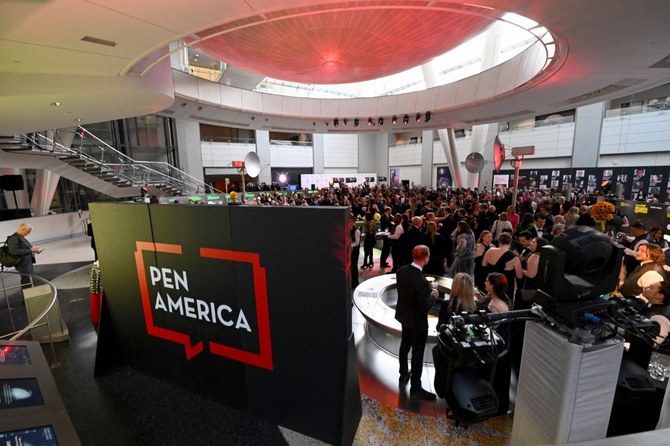
- Almost half of nominated authors withdrew works from consideration
- PEN America accused of complicity in ‘normalizing genocide’ in Gaza
LONDON: PEN America has cancelled its 2024 annual literary awards after several authors boycotted the event over the organization’s perceived failure to take a strong stance against Israel’s war on Gaza.
The decision came in response to an open letter signed by dozens of authors and translators who withdrew their work from consideration for the awards.
Sixty-one authors and translators were nominated but 28 withdrew their work, according to a statement released on Monday, forcing the organization to cancel next week’s event.
“This is a beloved event and an enormous amount of work goes into it, so we all regret this outcome but ultimately concluded it was not possible to carry out a celebration in the way we had hoped and planned,” said CEO Suzanne Nossel.
The boycott emerged amidst growing tensions with PEN, with authors urging the organization to take a stronger stance on the Palestinian crisis and advocate for a Gaza ceasefire.
In the letter, PEN was accused of acting as a “cultural front for American exceptionalism” and complicity in “normalizing genocide” by failing to address the situation in Gaza adequately.
“In the context of Israel’s ongoing war on Gaza, we believe that PEN America has betrayed the organization’s professed commitment to peace and equality for all, and to freedom and security for writers everywhere,” said a separate letter signed last month by several famous writers including Michelle Alexander, Naomi Klein and Zaina Arafat.
PEN America has defended its actions, citing its recent condemnation of the loss of life in Gaza, calls for a ceasefire, and the establishment of a $100,000 emergency fund for Palestinian writers.
The awards, which celebrates voices across various genres including writers of fiction, poetry, children’s literature and drama, was scheduled for April 29 at the Town Hall in New York City.
Russia orders jail term for Meta spokesman in absentia on ‘terrorism’ charges
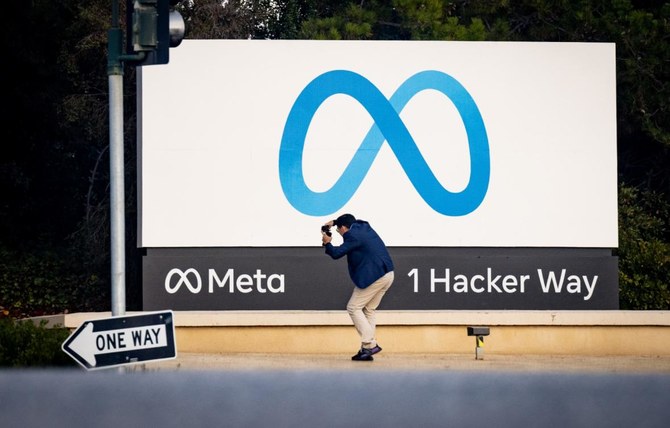
- Andy Stone was sentenced to six years in what has been described as a symbolic ruling agaist Western social media platforms
MOSCOW: A Russian military court on Monday sentenced in absentia Meta spokesman Andy Stone to six years behind bars for “justifying terrorism,” as part of efforts to restrict Western social media platforms in the country.
The largely symbolic ruling came several months after Mosocw, which has blocked Meta platforms Instagram and Facebook, put the US citizen on a wanted list.
Judge Roman Kiforenko said the sentence would begin upon Stone setting foot on Russian territory or being extradited to Russia, news agencies reported.
The case followed a post by Stone in March 2022 — weeks into Moscow’s offensive in Ukraine — in which he said Facebook would not punish users calling for violence against Russian forces.
Stone said Meta had “temporarily made allowances for forms of political expression that would normally violate our rules like violent speech such as ‘death to the Russian invaders.’“
“We still won’t allow credible calls for violence against Russian civilians,” the post read.
Nick Clegg, the President of Meta Global Affairs, said at the time that the policy would only apply “in Ukraine itself.”
Clegg said the decision was taken in “extraordinary and unprecedented circumstances” and was designed to protect “people’s rights to speech as an expression of self-defense.”
Russia barred Meta CEO Mark Zuckerberg from entering the country shortly after launching hostilities in Ukraine.
Moscow does not tolerate criticism of the offensive on social media, imposing fines or jail terms to thousands for denouncing the large-scale military campaign now in its third year.
Terry Anderson, US journalist held hostage nearly 7 years in Lebanon, dead at 76

- Former AP correspondent was abuducted by pro-Iran Shiite Muslim group as part of “continuing operations against Americans”
LONDON: Terry Anderson, a US journalist who was held captive by Islamist militants for almost seven years in Lebanon and came to symbolize the plight of Western hostages during the country’s 1975-1990 civil war, died on Sunday at age 76, his daughter said in a statement.
The former chief Middle East correspondent for The Associated Press, who was the longest held hostage of the scores of Westerners abducted in Lebanon, died at his home in Greenwood Lake, New York, said his daughter Sulome Anderson, who was born three months after he was seized. No cause of death was given.
Kept in barely-lit cells by mostly Shiite Muslim groups in what was known as The Hostage Crisis, and chained by his hands and feet and blindfolded much of the time, the former Marine later recalled that he “almost went insane” and that only his Roman Catholic faith prevented him from taking his life before he was freed in December 1991.
“Though my father’s life was marked by extreme suffering during his time as a hostage in captivity, he found a quiet, comfortable peace in recent years. I know he would choose to be remembered not by his very worst experience, but through his humanitarian work with the Vietnam Children’s Fund, the Committee to Protect Journalists, homeless veterans and many other incredible causes,” Sulome Anderson said.
The family will take some time to organize a memorial, she said.
Anderson’s ordeal began in Beirut on the morning of March 16, 1985, after he played a round of tennis. A green Mercedes sedan with curtains over the rear window pulled up, three gunmen jumped out and dragged Anderson, still dressed in shorts, into the car.
The pro-Iran Islamic Jihad group claimed responsibility for the kidnapping, saying it was part of “continuing operations against Americans.” The abductors demanded freedom for Shiite Muslims jailed in Kuwait for bomb attacks against the US and French embassies there.
It was the start of a nightmare for Anderson that would last six years and nine months during which he was stuck in cells under the rubble-strewn streets of Beirut and elsewhere, often badly fed and sleeping on a thin, dirty mattress on a concrete floor.
During captivity, both his father and brother would die of cancer and he would not see his daughter Sulome until she was six years old.
“What kept me going?” he asked aloud shortly after release. “My companions. I was lucky to have people with me most of the time. My faith, stubbornness. You do what you have to. You wake up every day, summon up the energy from somewhere. You think you haven’t got it and you get through the day and you do it. Day after day after day.”
Other hostages described Anderson as tough and active in captivity, learning French and Arabic and exercising regularly.
However, they also told of him banging his head against a wall until he bled in frustration at beatings, isolation, false hopes and the feeling of being neglected by the outside world.
“There is a limit of how long we can last and some of us are approaching the limit very badly,” Anderson said in a videotape released by his captors in December 1987.
Marcel Fontaine, a French diplomat who was released in May 1988 after three years of captivity, recalled the time cell mate Anderson thought freedom was near because he was allowed to see the sun and eat a hamburger.
In April 1987 Anderson was given a suit of clothes that his captors had made for him. “He wore it every day,” Fontaine said.
A week later, however, Anderson’s captors took the suit back, leaving him in despair and certain he was forgotten, Fontaine said.
Scores of journalist groups, governments and individuals over the years called for Anderson’s release and his Oct. 27 birthday became an unofficial US memorial day for hostages.
Anderson said he considered killing himself several times but rejected it. He relied heavily on his faith, which he said he had renewed six months before being kidnapped.
“I must have read the Bible 50 times from start to finish,” he said. “It was an enormous help to me.”
His sister, Peggy Say, who died in 2015, was his fiercest advocate during captivity.
She worked tirelessly for her brother’s freedom. She visited Arab and European capitals, lobbied the Pope, the Archbishop of Canterbury and every US official and politician available.
Under pressure from the media and the US hostages’ families, the Reagan administration negotiated a secret and illegal deal in the mid-1980s to facilitate arms sales to Iran in return for the release of American hostages. But the deal, known as the Iran–Contra affair, failed to gain freedom for any of the hostages.
Born Oct. 27, 1947, in Lorain, Ohio, Anderson grew up in Batavia, New York. He graduated from Iowa State University and spent six years in the Marine Corps, mostly as a journalist.
He worked for the AP in Detroit, Louisville, New York, Tokyo, Johannesburg and then Beirut, where he first went to cover the Israeli invasion in 1982.
In that war-torn city, he fell in love with Lebanese woman Madeleine Bassil, who was his fiance and pregnant with their daughter Sulome when he was snatched.
He is survived by his daughters Sulome and Gabrielle, his sister Judy and brother Jack, and by Bassil, whom Sulome Anderson called “his ex-wife and best friend.”
Anderson and fellow hostages developed a system of communication by tapping on walls between their cells. Always the journalist, Anderson passed on news of the outside world he had picked up during captivity to Church of England envoy Terry Waite, being held hostage in an adjacent room in September 1990 after years of solitary confinement.
“Then the world news: the Berlin Wall’s falling, communism’s demise in eastern Europe, free elections in the Soviet Union, work toward multiracial government in South Africa. All the incredible things that have happened since he was taken nearly three years ago. He thought I was crazy,” Anderson wrote in his 1993 book “Den of Lions.”
After his release, Anderson taught journalism at Columbia University in New York, Ohio University, the University of Kentucky and the University of Florida until he retired in 2015.
Among businesses he invested in were a horse ranch in Ohio, and a restaurant. He unsuccessfully ran for the Ohio state Senate as a Democrat in 2004 and sued Iran in federal court for his abduction, winning a multimillion-dollar settlement in 2002.
British man investigated for hate crime after viral racist rant against Muslim women

- ‘I don’t understand why people stand by and let it happen,’ says witness
LONDON: A hate crime investigation is underway following a viral video of an attack against Muslim women in East London, police confirmed on Sunday.
The incident occurred on Saturday in Romford when a white male, wearing glasses, targeted the group, some of whom were wearing hijabs and pushing shopping trolleys.
The footage, shared by Redbridge Community Action Group, shows the man following the women down South Street, a busy shopping area, while shouting and gesturing aggressively as they attempt to leave the scene.
The man is heard using profanities and labeling the women “Muslim traitors.”
In an outburst caught on camera, he accused one of the women of supporting missile attacks against Israel, adding: “We don’t want you here.” He went on to use an expletive.
The Metropolitan Police has confirmed it is treating the confrontation as a hate crime.
Scotland Yard posted on X: “We are aware and urgently investigating this clearly unacceptable incident. We will be speaking to the victim later.”
Vaseem Ahmed, 55, who was participating in a rally supporting a free Palestine, and located near Barclays Bank on the high street, witnessed the incident.
As police arrived, Ahmed noted that the activists dispersed, with the confrontation occurring as the women headed home.
He told The Independent: “I’d say to him (the white male) ‘If you’re going to be brave, do the same thing in front of some Muslim men (and) then see what the outcome is.’
“Don’t target innocent people; it’s the worst kind of bullying. And grow up. Some of the stuff he was saying was really vile.
“He was so angry and so worked up he couldn’t get his words out properly. It wasn’t the most eloquent rant.”
He added: “I know those women from other demonstrations. I was shocked in the way it happened, but then not shocked at the same time. Islamophobic attacks have skyrocketed since Oct. 7.
“A lot of government ministers and even Rishi Sunak refuse to call out Islamophobia when it happens, and people get emboldened.
“We are visibly Muslim, especially women, (and) they become easy targets. That’s the saddest thing.
“I didn’t see anyone intervene. They might have been concerned for their safety, but all you have to do is shout a few times; you don’t have to put yourself in danger. I don’t understand why people stand by and let it happen.”



